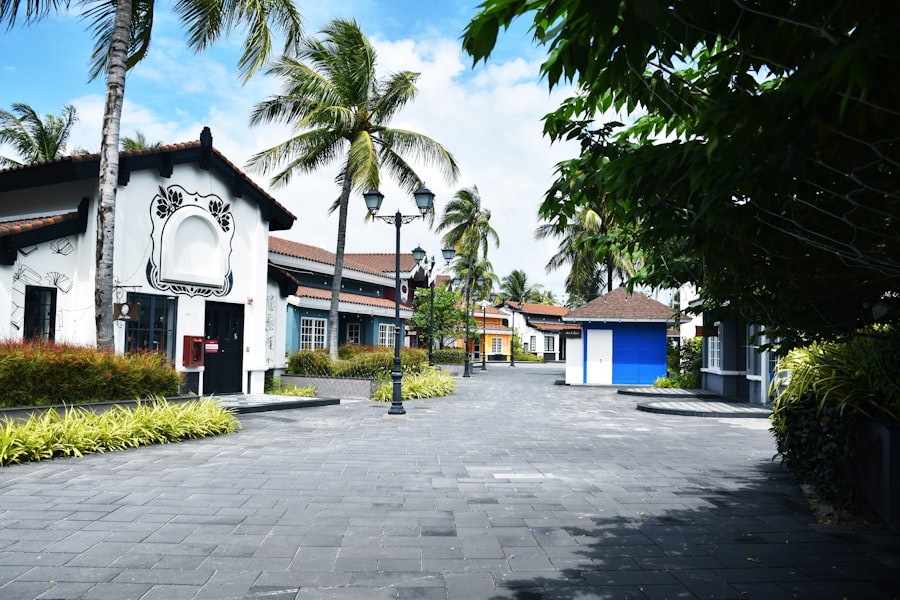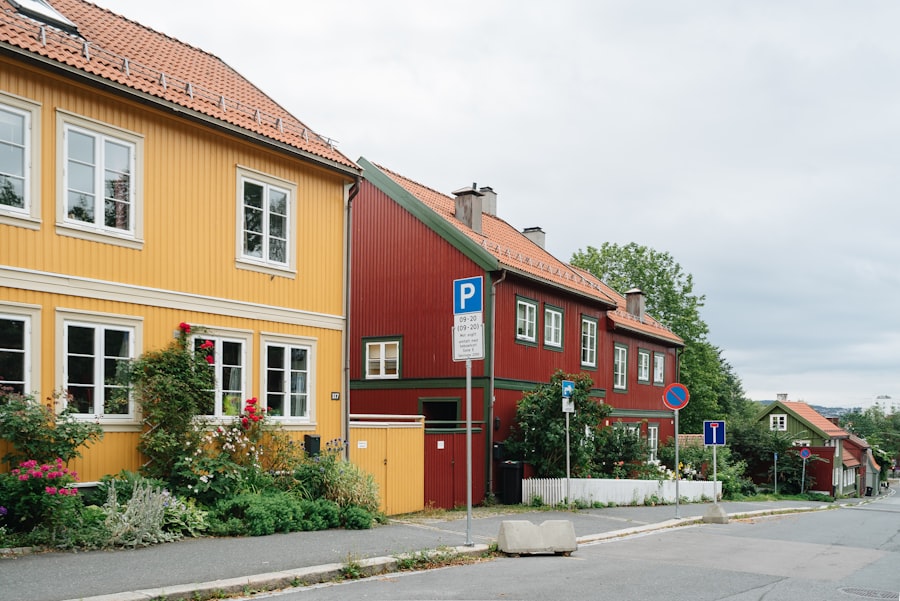Single wide manufactured homes, often referred to simply as single wides, are a type of prefabricated housing that is constructed in a factory and transported to a designated site. These homes are typically characterized by their narrow, elongated design, which usually measures between 14 to 18 feet in width and can range from 60 to 90 feet in length. Unlike modular homes, which are built in sections and can be placed on a permanent foundation, single wide manufactured homes are often set up on a temporary foundation and can be relocated if necessary.
They are built according to the standards set by the U.S. Department of Housing and Urban Development (HUD), ensuring that they meet specific safety and quality regulations. The construction process of single wide manufactured homes involves assembling various components, including walls, roofs, and floors, in a controlled environment.
This method allows for greater efficiency and quality control compared to traditional on-site building methods. Once completed, the home is transported to its final location, where it is connected to utilities such as water, electricity, and sewage systems. The design flexibility of single wide homes allows for a variety of layouts and styles, catering to different tastes and needs.
As a result, they have become an increasingly popular choice for individuals and families seeking affordable housing solutions.
Key Takeaways
- Single wide manufactured homes are prefabricated homes that are built in a factory and then transported to the home site in one piece.
- Choosing a single wide manufactured home can offer benefits such as affordability, energy efficiency, and quicker construction time.
- When comparing costs, single wide manufactured homes are generally more affordable than traditional homes, both in terms of upfront costs and ongoing expenses.
- Customization options for single wide manufactured homes include various floor plans, finishes, and upgrades to suit individual preferences and needs.
- Financing options for single wide manufactured homes may include traditional mortgages, chattel loans, or personal property loans, depending on the home’s classification and location.
Benefits of Choosing a Single Wide Manufactured Home
One of the primary benefits of choosing a single wide manufactured home is affordability. These homes typically cost significantly less than traditional site-built homes, making them an attractive option for first-time homebuyers or those looking to downsize. The lower price point is largely due to the efficiency of the manufacturing process, which reduces labor costs and material waste.
Additionally, single wide homes often come with lower property taxes and insurance premiums compared to conventional houses, further enhancing their financial appeal. Another advantage is the speed of construction and installation. While traditional homes can take months or even years to build, single wide manufactured homes can often be completed in a matter of weeks.
This rapid turnaround time allows buyers to move into their new homes much sooner than they would with a traditional build. Furthermore, many manufacturers offer ready-to-move-in options that include appliances and fixtures, streamlining the transition for new homeowners. The ability to quickly secure housing can be particularly beneficial in areas experiencing housing shortages or for individuals needing immediate accommodation.
When comparing the costs of single wide manufactured homes to traditional site-built homes, the differences are striking. On average, single wide manufactured homes can cost anywhere from $30,000 to $100,000, depending on size, features, and location. In contrast, the median price of a traditional home in the United States often exceeds $300,000.
This significant price gap makes single wides an appealing option for those on a budget or looking to invest in real estate without incurring substantial debt. Moreover, the cost of ownership extends beyond the initial purchase price. Single wide manufactured homes generally incur lower ongoing expenses.
For instance, utility costs may be lower due to their smaller size and energy-efficient designs. Additionally, maintenance costs tend to be more manageable since these homes are built with modern materials that require less upkeep than older traditional homes. Homeowners can also benefit from lower property taxes in many regions, as manufactured homes are often assessed at a lower value than their site-built counterparts.
Customization Options for Single Wide Manufactured Homes

Customization is another appealing aspect of single wide manufactured homes. Many manufacturers offer a range of options that allow buyers to personalize their living spaces according to their preferences and needs. From choosing the layout and floor plan to selecting finishes such as cabinetry, flooring, and countertops, homeowners have the opportunity to create a space that reflects their style.
Some manufacturers even provide options for energy-efficient appliances and eco-friendly materials, catering to environmentally conscious buyers. In addition to interior customization, exterior options are also available. Buyers can select from various siding materials, roofing styles, and color schemes to enhance curb appeal.
Landscaping options may also be included in some packages, allowing homeowners to create an inviting outdoor space. This level of customization ensures that even within the constraints of a single wide design, homeowners can achieve a unique look that sets their home apart from others in the community.
Financing Options for Single Wide Manufactured Homes
| Financing Option | Interest Rate | Loan Term | Down Payment |
|---|---|---|---|
| Traditional Mortgage | 3.5% – 5% | 15 – 30 years | 5% – 20% |
| FHA Loan | 3.5% – 4% | 15 – 30 years | 3.5% |
| Chattel Loan | 5% – 7% | 10 – 20 years | 5% – 20% |
Financing a single wide manufactured home can differ significantly from securing a mortgage for a traditional home. Many lenders offer specialized loans designed specifically for manufactured housing. These loans may include personal loans or chattel loans, which are secured by the home itself rather than the land it sits on.
This distinction is crucial because it affects the terms and interest rates associated with the loan. For those who own land where the home will be placed, obtaining a conventional mortgage may be possible. This type of financing typically offers lower interest rates and longer repayment terms compared to personal loans or chattel loans.
However, potential buyers should be aware that not all lenders are willing to finance manufactured homes due to perceived risks associated with depreciation and resale value. It is advisable for prospective homeowners to shop around for lenders who specialize in manufactured home financing and understand the unique aspects of these properties.
Maintenance and Upkeep of Single Wide Manufactured Homes
Maintaining a single wide manufactured home requires attention to detail but is generally less demanding than maintaining a traditional house. The materials used in modern manufactured homes are often designed for durability and low maintenance. For example, vinyl siding is commonly used due to its resistance to weathering and ease of cleaning.
Similarly, energy-efficient windows can help reduce heating and cooling costs while requiring minimal upkeep. Regular maintenance tasks include checking for leaks in plumbing systems, inspecting the roof for damage after severe weather events, and ensuring that heating and cooling systems are functioning properly. Homeowners should also be proactive about maintaining the foundation and ensuring proper drainage around the home to prevent water damage.
By staying on top of these tasks, owners can extend the lifespan of their single wide manufactured homes and maintain their value over time.
Community Living in Single Wide Manufactured Home Parks

Many single wide manufactured homes are located within designated mobile home parks or communities specifically designed for manufactured housing. Living in such communities offers several advantages, including access to shared amenities like swimming pools, clubhouses, and recreational facilities. These communal spaces foster a sense of community among residents and provide opportunities for social interaction.
Additionally, living in a manufactured home park often means that maintenance responsibilities for common areas are handled by management, relieving homeowners of some upkeep burdens. However, it is essential for prospective buyers to research different parks thoroughly before making a decision. Factors such as park rules, fees, and community culture can significantly impact the living experience in these environments.
Tips for Finding Affordable Single Wide Manufactured Homes
Finding an affordable single wide manufactured home requires diligence and research but can yield rewarding results. One effective strategy is to explore various online platforms that specialize in listing manufactured homes for sale. Websites dedicated to real estate often feature filters that allow users to search specifically for manufactured housing within their desired price range and location.
Networking within local communities can also be beneficial; attending open houses or visiting local manufactured home parks may lead to discovering available units before they are widely advertised. Additionally, connecting with real estate agents who specialize in manufactured homes can provide valuable insights into market trends and pricing strategies. Finally, considering purchasing a used single wide home can offer significant savings while still providing an opportunity for customization and personalization through renovations or upgrades.
In conclusion, single wide manufactured homes present an attractive option for those seeking affordable housing solutions without sacrificing quality or comfort. With various benefits ranging from cost savings to customization options and community living opportunities, they cater to diverse lifestyles and preferences while offering practical solutions in today’s housing market.

